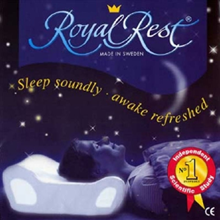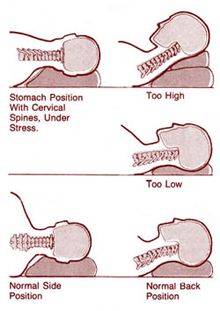COVID-19 (2023 update)
Covid-19 is still a concern for much of the population. Guided by the public and regulatortary guidelines we, at Alevia Healthcare have chosen to maintain the transparent barrier at reception and continue using masks to prevent cross-contamination of seasonal infuenza and coronavirus.
Whilst our clinic policy includes the wearing of masks for clinicians, it is at the patients discretion to continue to wear their mask whilst in the clinic and in the consultation room.
Coronavirus/COVID-19 Information:
As times continue to change, we have made protocols to be able to operate within our normal opening hours to see patients and emergency cases. Specific key changes are in place to our services so that we can provide chiropractic care and be able to support you.
Please see below for details. Information will be updated and is under constant review.
*To make an appointment, call us on 01494 471621 between the hours of 0880-1800 during weekdays or leave us a message after this time, for us to return your call.*
*Alternatively, you can email us on info@aleviahealthcare.co.uk or via our enquiry form.*
We understand that many of you are anxious and worried about the current and changing climate surrounding the outbreak of the virus known as coronavirus or COVID-19. We are in a time which is unprecedented in our modern society and we are following current guidelines and adapting as things change – we really want to help and support you.
***Please check here to stay informed and stay updated with periodic changes.***
At Alevia, we are happy to respond to ANY enquiry, so please do not hesitate to contact us should you have any concerns or would like some advice.
It is important for people to work towards being physically free from tissue damage or injury to enable to body to maximise its immune response to any exposure to colds and viruses, therefore, we will be continuing to offer chiropractic and physiotherapy to maximise the health benefits of continued care from our practitioners. Studies show that mechanically derived pain, like back / neck pain increases stress hormone levels which can in turn decrease your resistance to infections. ….For example, when you are run down with stress or lack of sleep you are more likely to catch a cold.
For reassurance, although COVID-19 is a serious illness, the majority of people exposed go on to make a full recovery. It is important to remember to protect the vulnerable and should you have a new dry cough associated with a fever and muscle fatigue you should follow the guidelines for self-isolation.
NHS Health and Information Guidelines: Coronavirus (COVID-19)
We are committed to continuing our care and our staff are committed to helping the community.
Thank you for your understanding, co-operation and your continued support of our clinic.
Sugar. Are you addicted?
It’s everywhere you look …’beware sugar’, ‘sugar, the new crack cocaine’, ‘is sugar toxic?’ …I don’t know about you but I’m starting to think about the sugar in my diet! Even the BBC are doing a 4th series of ‘Trust Me, I’m a Doctor’ on some great health topics, including those around sugar; in addition to an entire episode on ‘The Truth About… Sugar’.
So what really is the deal with the great sugar scare this year? I’m certain that we can safely say that we all know too much sugar in our diet is not healthy, particularly refined sugars. But now coming into the mix is the subject of fruit sugars – fructose. Also, all carbohydrates (even the ‘healthy/low GI’ ones) break down into sugars and we know that the brain needs glucose to function properly.
What a confusing picture …’sugar’ in our diet cannot be avoided and our body needs it, so the real questions are… how much sugar is too much, are some sugars better for us than others and what happens if I eat too much? …apart from an increase in waist circumference!
There is much truth surrounding the issues being discussed around sugars, however, something that is currently being researched is that each of us metabolise sugar differently and therefore the effect of sugar on our body is different also. So in one person, eating a bowl of rice may massively spike insulin levels in the blood whereas another person may have a smaller insulin spike. Regular and repeated insulin spikes increase the work load on the pancreas and increases the likelihood of developing diabetes along with other health issues.
First things first, we need to assess how much sugar and the type of sugar we actually consume, that includes the hidden ones. You need to know that sugar comes in may forms, the most common types end in ‘ose’ …glucose, sucralose, fructose, dextrose; and others are more obvious, examples being cane sugar, agave, honey and corn syrup. We need to become way more savvy with nutritional and ingredients labels to truly assess the added sugars contained in our foods. Watch out, low fat usually means high sugar!
Sugar addiction is no myth and is fast becoming an accepted problem. The science behind the physical and psychological aspects of addiction are sound and sugar is right in there along with smoking and recreational drugs. Just look at the common symptoms of addiction and you may be surprised to have some if not all of them…
Withdrawal: if you give up sugar completely you will likely suffer from cravings and headaches until your body learns to cope with out it.
Addiction continues despite awareness of health problems or implications: we all know the health problems associated with excess sugar yet we still eat far too much of it.
Maintaining a good supply: who doesn’t have a stash of chocolate, ‘just in case’.
Obsession: once we crave and fancy a bit of the sweet stuff, we are usually on a mission until we are holding it in our hand!
Excess consumption: once you start, you just can’t stop – sound familiar?
You may find it insightful to look at the effects physically and mentally, as documented on ITV’s ‘Sugar Free Farm’ – some are rather surprising!
In my personal opinion, if you have regular added sugar everyday it no longer becomes a treat but actually part of your diet!
Best sugar reduction policy: buy fresh vegetables, fruit, meat and fish, cook from scratch and eat more whole grains in place of breads. Not only will you dramatically cut down added sugars but your vitamin and mineral consumption will increase too. If an investment of time and effort into your health is not a priority, it’s going to be very tricky to enjoy quality of life later down the line, without being propped up with a bag of medication and a stick.
Discussions in the media:
‘Make A Tax On Sugar Top of the Health Agenda’ Guardian
‘Parents Urged to Get Free Sugar App to Check Products’ BBC
‘Sweet Poison: Why Sugar is Ruining Our Health’ Guardian
‘Do You Know How Much Sugar You Eat?’ BBC
RESEARCH AND RELEVANT ARTICLES:
‘A Systematic comparison of Sugar Content in low fat vs regular versions of food’
2016 Nutrition & Diabetes
‘The role of nutrition labels and advertising claims in altering consumers’ evaluation and choice’
2016 Appetite













